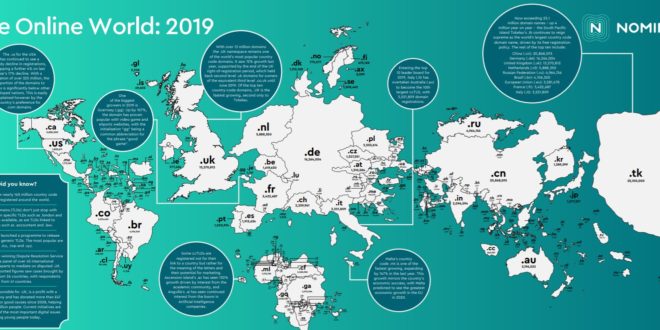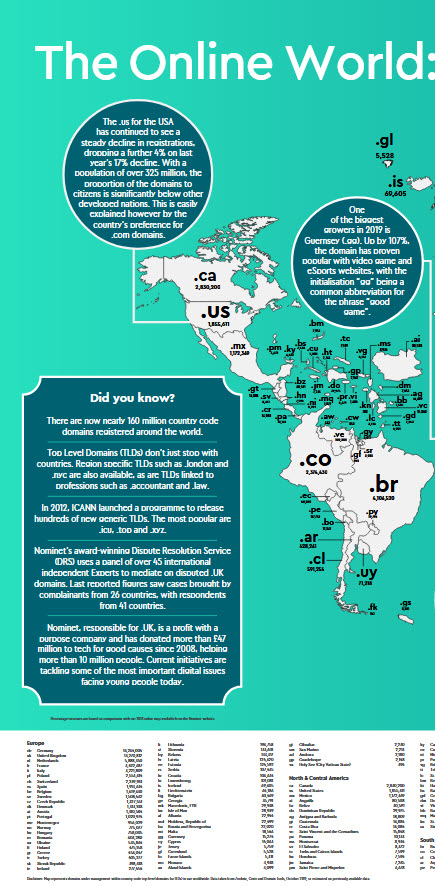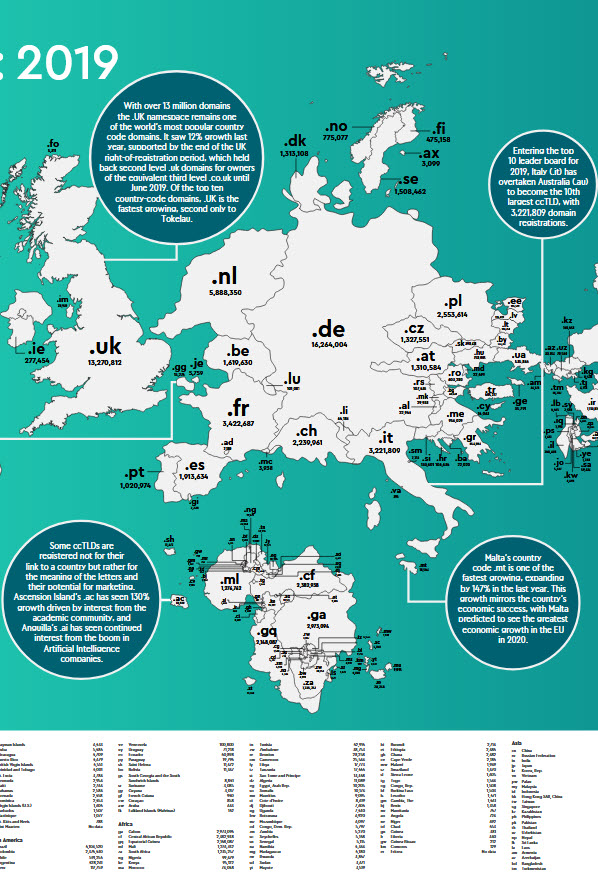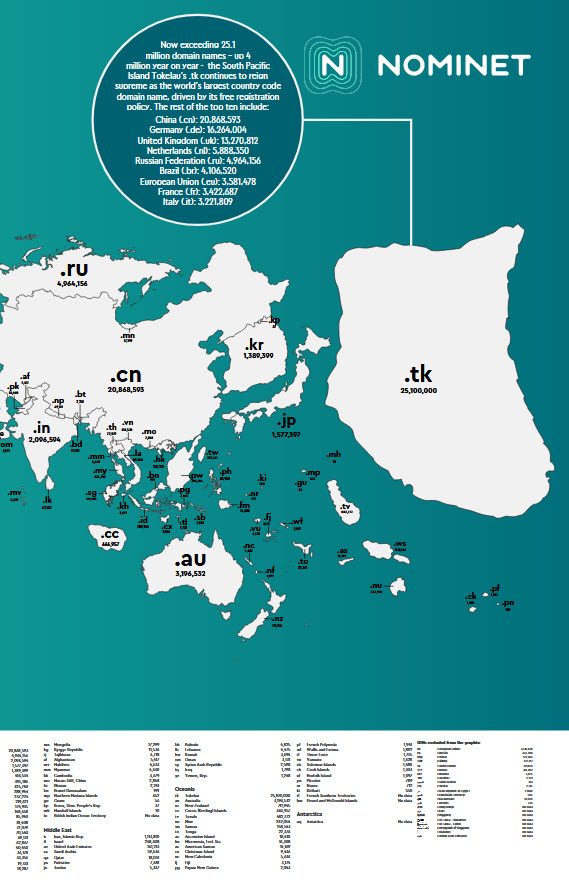Nominet created a world map using the number of registrations of country code Top Level Domains (ccTLDs) to represent the size of the respective country.
Countries are in the right places, but not of the size you would expect. The size of the country is relative not to its geographical size, but the number of ccTLD domains currently under management. For yet another year, the tiny island of Tokelau dominates, with over 25 million domains registered. Its popularity is due to .tk domains being available free to all, while no expired domains are ever deleted, allowing the total to continue to build.
The next largest countries on our map are China, Germany and the UK. According to recent statistics, ccTLDs account for 41% of all domains and number around 158.7 million in total. Almost half of all those are in Europe – 72 million – where countries seeing the highest growth this year include Poland (.pt), Ireland (.ie), France (.fr) and Estonia (.ee).
Two different examples demonstrate the differing appeal of a ccTLD. Firstly, Malta’s .mt grew by 146% in the past year. This growth mirrors the country’s economic success, with the country predicted to see the greatest economic growth in the EU in 2020. Then we have Guernsey’s .gg, which grew 107% over the year due to the appeal of the letter combination to video game and esports websites.
Despite these two examples, growth rates generally are low. European ccTLDs dominate the ccTLD market but grew just 2% on average.
For some, ccTLDs can be a source of national pride, but they can also have a strong political dimension. One story that rippled across domain press this year involved a letter from VPN.com CEO Michael Gargiulo to Donald Trump and ICANN demanding that Iran’s ccTLD be removed from the DNS root zone. This came in response to the censorship in Iran – in the week before the letter, the Iranian Government terminated nearly 95% of all public internet access in the country.
Other news concerned the ccTLD .io, which is potentially facing retirement as the ‘country’ in question (the Chagos Archipelago) could soon no longer officially exist. Earlier this year, a UN ruling called on the UK to end its administration of the island, which could strip it of country status. The ccTLD has over 270,000 domains registered, despite the transitory population of just 3,000 consisting of army and Government personnel from the US and the UK. Many of these registrants are tech businesses – could they face losing their domains?
 OnlineDomain.com Domain Name News & Opinions
OnlineDomain.com Domain Name News & Opinions






 OnlineDomain.com - © Copyright 2012-2026 - All Rights Reserved
OnlineDomain.com - © Copyright 2012-2026 - All Rights Reserved